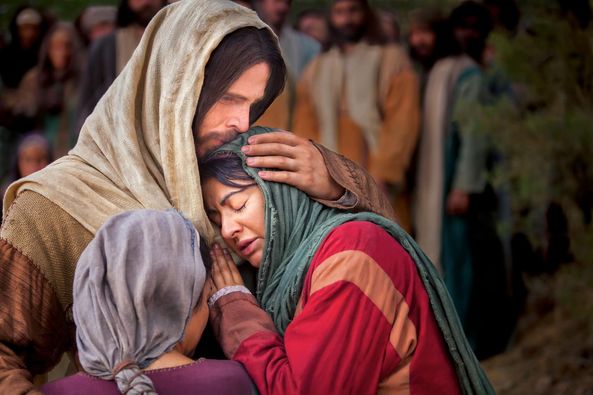288 total views
Homily for 29 July 2022, Friday of the 17th Week in Ordinary Time, Jn 11:19-27

We celebrated the memorial of Mary Magdalene a few days ago. And if you remember, I mentioned to you that she had been given the singular title, “apostle to the apostles” by Pope Francis. If I were to be given the privilege of giving Martha a title, what would it be? I think I would call her “FRIEND OF JESUS.”
This woman, along with her siblings, are a big puzzle to biblical scholars. The only other Gospel writer who seems to know a little about them is Luke. It is from him that we get the famous story about Jesus being their guest at Bethany and being rebuked by Martha for not caring that she had to do all the cooking in the kitchen because he had allowed her younger sister Mary to “sit at his feet.”
That story is consistent with the portrayal of Martha’s character in today’s Gospel, from John. She is again rebuking Jesus, this time for coming too late in their time of need. For not being there for their brother Lazarus when he was mortally ill, despite all their efforts to reach him. This woman and her siblings are only secondarily disciples to Jesus; I’d say they are primarily his close friends. And so the better title that would fit Martha’s kind of character is “FRIEND OF JESUS.”

The other Gospels usually tell us a little about the circumstances that brought about the involvement of Jesus in the lives of his closest disciples—like Peter, James, and John, Mary Magdalene, Matthew, or Philip and Nathanael. They give us an idea how these people became his followers. Not so with Martha of Bethany and her siblings.
What is most unusual about them is that they are not even Galileans like most of the other disciples. They are Judeans—from a village called Bethany, very close to Jerusalem. Both Luke and John give us the impression that their house was the home base of Jesus whenever he was in Judea, a place where he was always welcome.
I have a feeling that they were his childhood friends, very much like John the Baptist was to Jesus. In my book Yeshua, which was an effort to read between the lines of the Gospels, I suggested that Jesus must have spent a big part of his life in Judea because he became very close to John the Baptist whose family was also from Judea. Luke tells us John’s mother was Mary’s close relative, and that Mary had stayed with Elizabeth for six months and had assisted at the birthing of John. He also tells us Jesus’ family visited Judea once a year during the Passover festival which lasted for more than a week, and that one time, when he was twelve, he even dared to stay behind without permission from his parents.
Could it be that both Jesus and John had been childhood friends of Martha, Mary and Lazarus? Could it be that from friends, they would later also become disciples? I wonder if Jesus did not have Martha and siblings in mind when he said, “I no longer call you servants; I call you FRIENDS.”
The usual Rabbi-student relationship was supposed to be formal: like a master-disciple kind of dynamic. The disciples usually “sat at the feet” of their Rabbis. It was what Martha’s sister, Mary, dared to do. But it was only Martha who could rebuke the Rabbi affectionately like a friend, the only one who could be candid about her feelings, the only one who could not be saddled by the formalities of being a disciple.
We have so much to thanks this woman for. In their kind of cultural setting where close friendships between men and women were viewed with suspicion and malice, it was quite daring of Jesus to have these siblings, especially these two unmarried women as his close friends.
You know what I read between the lines of Martha’s rebuke to Jesus about Mary? I think what she meant to say was, “Hey, that’s unfair, Jesus. I don’t want to miss any of your stories. You better tell that girl to wait until after dinner for your stories, so I can hear them too. Meanwhile you better tell her to help me in the kitchen.”
And in today’s Gospel, what I read between the lines is this, “Jesus, I’ve known you only as our friend. But I’ve always known that you were more than that to us. That you are what your disciples say you are, “the Christ, the Son of God.” Can you also be that to us now, if you love us as your friends?”
















